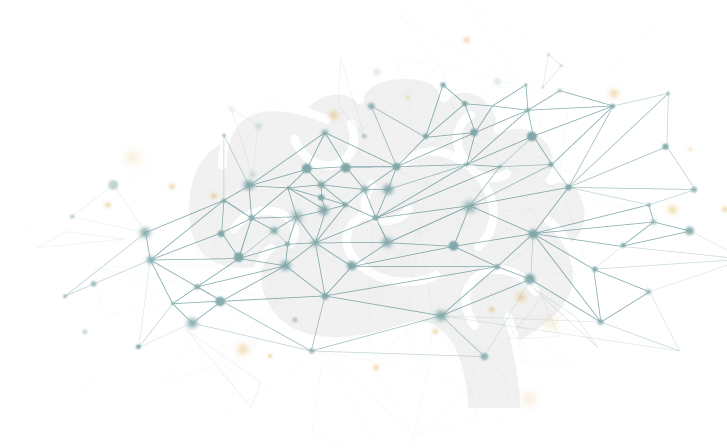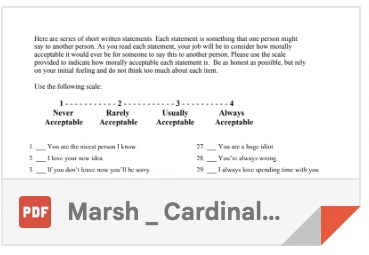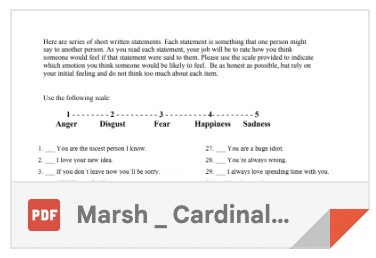Research MEASURES
Research Measures

The following measures are freely available for use in research with appropriate citations. Please see details below regarding measures and relevant citations
The Emotionally Evocative Statements Task (Marsh &. Cardinale, 2012).
The emotionally evocative statements task consists of 100 validated short statements that were created to elicit anger, disgust, fear, sadness, and happiness. It assesses the accuracy with which respondents can make predictions about others’ specific emotional states, as well as their moral judgments about causing others to feel these emotions. Participants view and rate each statement twice. In the first round, they evaluate how morally acceptable it would ever be for someone to make that statement to another person. In the next round, they evaluate what emotion a person would be most likely to experience if that statement were made to them.
- Marsh, A. A., & Cardinale, E. M. (2012). Psychopathy and fear: Specific impairments in judging behaviors that frighten others. Emotion, 12(5), 892–898. https://doi.org/10.1037/
a0026260
- Cardinale, E. M., et al. (2021). Bilateral amygdala damage linked to impaired ability to predict others’ fear but preserved moral judgements about causing others fear. Proc Biol Sci, 288(1943), 20202651. https://doi.org/10.1098/rspb.
2020.2651 - Cardinale, E. M., et al. (2018). Externalizing behavior severity in youths with callous-unemotional traits corresponds to patterns of amygdala activity and connectivity during judgments of causing fear. Dev Psychopathol, 30(1), 191–201. https://doi.org/10.1017/
S0954579417000566 - Marsh, A. A., & Cardinale, E. M. (2014). When psychopathy impairs moral judgments: Neural responses during judgments about causing fear. Soc Cogn Affect Neurosci, 9, 3–11. https://doi.org/10.1093/scan/
nss097

